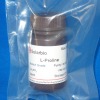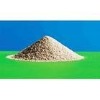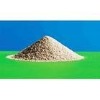- Plant Extract[39]
- Organic Intermediate[10]
- Nutrient Additives[3]
- Umbrella Stands[19]
- Chemical Projects[6]
- Chemical Reagents[10]
- Test Tube[1]
- Pipette[1]
- Laboratory Centrifuge[2]
- Other Lab Supplies[2]
- Laboratory Bottle[1]
- Swelling[1]
- Food Additives[3]
- Glial[1]
- Pharmaceutical[7]
- Polymer[6]
- Catalyst[1]
- Contact Person : Mr. Ma Yuling
- Company Name : Beijing Solarbio Science & Technology Co., Ltd.
- Tel : 86-10-86669876
- Fax : 86-10-88210286
- Address : Beijing,Beijing,Room 8108,No. 1 Building, North Lane, Beidajie,Fengtai District,Beijing
- Country/Region : China
- Zip : 100143
L-Proline
Detailed Product Description
The amino acid L-Proline is unique among the 20 amino acids normally found in proteins because it is the only imino acid among them.
The side chain is bonded to both the a-carbon and nitrogen atoms, giving a secondary amino group in the structure, and thus its characterization as an imino acid. In vivo, proline is both synthesized from and degraded to glutamate, with glutamate g-semialdehyde and D1-pyrroline-5-carboxylate as intermediates, by separate pathways.
In protein structure, collagen and elastin are notably rich in proline content. In collagen in particular, the proline ring structure helps to stabilize the collagen a-helix conformation.
The cis-trans isomerization of proline residues in ribonuclease A has been studied by fluorescence methods.
L-Proline is used in cell culture media and is a component of MEM non-essential amino acids solution (Product No. M 7145). In cell culture research, L-proline has been used in studies of MOLT-4 cells in starvation-induced apoptosis, maintenance of hematopoietic cell cultures derived from the prawn Nephrops norvegicus, growth behavior of various Escherichia coli strains at various L-proline concentrations, and rat primary hepatocytes in a collagen gel sandwich culture.
A procedure for the asymmetric self -aldolization of acetaldehyde that uses L-proline as a catalyst has been reported.Ground- and transition-state analogue inhibitors of cyclophilin have been
synthesized using L-proline as the starting compound.
The use of L-proline to synthesize an optically active 1-oxo-2-oxa-5-azaspiro[3.4]octane
compound, related to the antibiotic oxazolomycin, has been described.
Precautions and Disclaimer
For Laboratory Use Only. Not for drug, household or other uses.
Storage/Stability
This product is soluble in water (50 mg/ml), yielding a clear, colorless solution.











